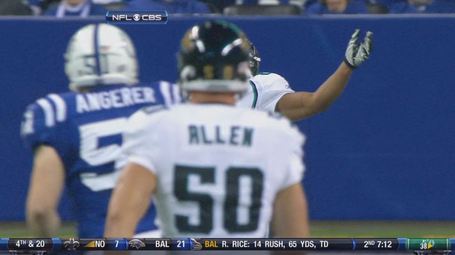Let's recap the situation. Five of Ohio State's best players were found to have accepted improper benefits from the selling of their game memorabilia and the acceptance of free tattoos in exchange for autographs dating back to two years ago. The NCAA, with it's vast knowledge, decided to suspend them for the first five games of 2011 but, inexplicably, allowed them to participate in the Sugar Bowl on January 4th.
Aren't NCAA punishments supposed to have some eye toward deterring future violations? If you're a pro prospect who is draft eligible, why would you not sell all your memorabilia before the bowl game? You now get to rake in the money, play in the bowl game, and then leave for the NFL having suffered no punishment. I guess at this point, asking the NCAA to look at the ramification of its actions is just too much of a burden on them.
Now, remember that these violations occurred up to two years ago. At the time of the receipt of improper benefits (or similar violations), the student-athlete immediately becomes ineligible, and schools are punished on a strict liability basis. Strict liability means that the school will be held responsible whether they knew that the student-athletes were ineligible at the time, or not. See the Derrick Rose saga for Memphis. Rose was found to be ineligible because someone took his SAT for him. The NCAA did not find out about this until after Rose's season was over (In fact, the NCAA Clearing House ruled him academically eligible prior to the start of the season), but when they did, they handed down a huge punishment that vacated Memphis' entire season. They had to use the strict liability rationale to defend that punishment because Memphis had no way of knowing that Rose was ineligible since they had followed every guideline. Compare that to this situation. If the NCAA was using the same standard, Ohio State would be guilty of playing ineligible players dating back to the date when the first improper benefits were received. What is the normal penalty for that? Vacating wins that the ineligible players participated in. However, in this case, the NCAA just decided to ignore the precedent set by the Rose case. Not only that, but they also managed to let Ohio State play full strength in the Sugar Bowl by deferring the penalties until the next year. Making up the rules as they go.
The reasoning for the leniency shown? The NCAA decided that the players were not properly educated on the rules. The dates of the sales have not been confirmed, but given the difference in time between rulings, it seems that some of the sales came after the controversies involving A.J. Green and UNC players. A.J. Green was suspended for the exact same memorabilia sales, but yet, it seems that it never sank in for some of the players. Terrelle Pryor even sold his Sportsmanship Award from the '09 Fiesta Bowl. Did they seriously think that they were allowed to do that? They were also so uneducated about the rules that they thought they could trade their autographs for wildly expensive tattoos. Crazy how that works. Give OSU's compliance department one bit of credit. They sure did fall on the sword with extreme effectiveness.
Having played D1 baseball, I know that before every single season, the compliance department is supposed to have a meeting with the teams and go over a handout of NCAA rules. That pamphlet specifically states that an athlete can accept no outside benefits that they would not have received if they were a regular student. Are we supposed to believe that the Ohio State compliance department didn't have that meeting? Does Terrelle Pryor get a pass because he was either asleep during it or too dumb to get the point? The "I didn't know" excuse has become the backbone of every major appeal, and it seems to be working fantastically.
Having played D1 baseball, I know that before every single season, the compliance department is supposed to have a meeting with the teams and go over a handout of NCAA rules. That pamphlet specifically states that an athlete can accept no outside benefits that they would not have received if they were a regular student. Are we supposed to believe that the Ohio State compliance department didn't have that meeting? Does Terrelle Pryor get a pass because he was either asleep during it or too dumb to get the point? The "I didn't know" excuse has become the backbone of every major appeal, and it seems to be working fantastically.
Once again, the key here is that the NCAA had to choose between upholding its current standards or allowing the Sugar Bowl to make more money. Money wins again. Rest assured, had this occurred at FIU, the penalty would have been swift and heavy-handed.


















